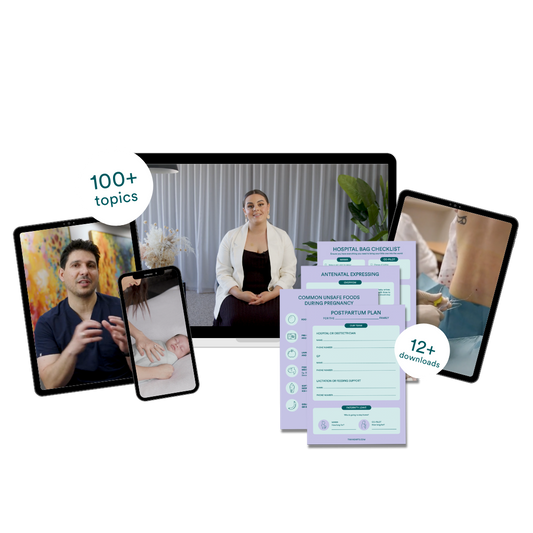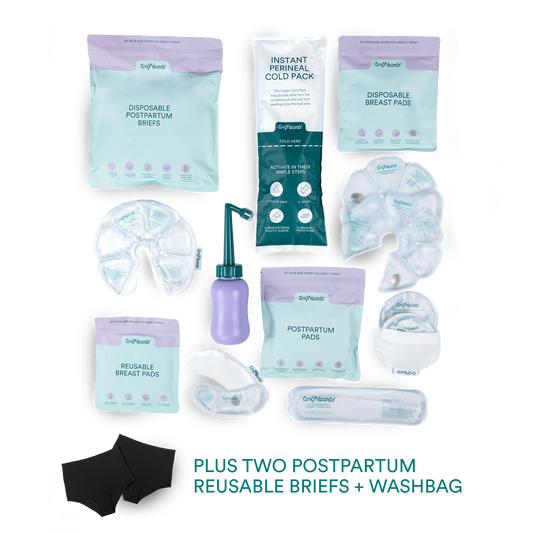Did you know that up to 70% of paediatric burns are treated incorrectly? When you think about the potentially life-long implications that a burn may have, you start to realise how critical it is to prevent and treat them correctly.
What's even scarier is that burns and scalds are the leading cause of injury for little ones because they're naturally curious in nature. In most incidences, they're caused by common household liquids. In fact, 82% of burns in little ones occurs in the home, and of those burns, 82% occur in the kitchen or bathroom.
How many times a day do you see your toddler pulling things down off the bench, tipping things over or putting them in their mouth? A lot. Now, what if that bowl on the bench they pulled down was cooking 2-minute noodles and was filled with boiling water? Or that cup on the coffee table they just pushed over had a fresh coffee in it? Or that thing they put in their mouth was a phone charger that was plugged into the wall? See what I mean? The risk might be lesser when stationary, but once your little one is on the move, they can get into so many things that weren't hazards before, so keep that in mind when they start crawling or walking.

Prevention
Like we always say, prevention is better than cure, so these are our tips for burns prevention:
- Avoid holding bubs and hot drinks at the same time. When people come over to meet bub, as hosts, we often offer them tea or coffee. What we commonly forget, though, is that bubs are unpredictable and often flail about without any warning, so they could knock the coffee cup at any point, leading to serious burns.
- Feel the bath and shower water yourself first before placing bub in there, remembering that what feels good to you may still be hot for bub.
- Implement rules around hot liquids and foods, such as 'all items with hot food or drink go at the back of the bench' where little ones can't reach and pull them down.
- Touch bub's food with your lip before serving to them to make sure it's not too hot.
- Turn saucepan handles backwards towards the wall rather than out towards yourself. Again, this prevents little hands from walking along and pulling the saucepan full of hot food or liquid onto themselves.
- Check the temperature of formula or expressed breast milk on the inside of your wrist before giving it to bub in a bottle.
- Keep bub out of the kitchen when you're cooking.
- When not in use, pull all chargers and electrical cords out of the wall and turn the power point off.
- Keep matches, lighters and chemicals away from where bub can reach.
- Slip, slop, slap, slide and seek to prevent sunburns.
- When you've finished using boiling water, empty the kettle and keep it that way until you need it again.
- Store chemicals in a cupboard secured with a child-proof lock.
- Educate little ones about the dangers of fire, touching the oven and playing with matches.
- Set a maximum temperature on your hot water tank to minimise the risk of burns.
- Secure stove top knobs with covers.
- If possible, section off the kitchen with baby gates.
- Use coffee cups with lids when possible.
- Educate yourself on burn first aid.
It's also really important to prepare your kids beforehand in the event of a house fire to prevent burns. We interviewed a fireman recently, and this was his advice:
"The best thing you can do is to prepare beforehand. When it comes to it, the fire is already in motion, so having kids who know what to do will make the biggest difference." To do that, here's what I suggest:
- Have a family fire safety plan [where will you meet, how will you get out, will you wait for each other, where can you get help if your phones are inside]
- Have a practice fire drill. I've said it before, and I'm going to keep on saying it. In an emergency, you don't rise to expectation; you fall to your level of training.
- Practice the fire survival skills like "Get down low and go, go, go" or "stop, drop and roll."
- Be honest with kids about fire. It's a tool; not a toy. But scaring them with it is often counter-productive.
- Include them in fire safety preparation, like testing smoke alarms, changing the battery regularly, turning off power points when not in use, regularly checking for fire hazards like a jumper on a heater, and teaching them early about avoiding overloading power points."

Signs + symptoms
The signs and symptoms of a burn include:
- A change in the appearance of the skin, such as appearing red, pink, white, waxy or charred.
- Burnt hair in the area, such as eyelashes for a facial burn.
- Pain. This one is a bit tricky though because in very severe burns, nerves can be burnt off, so your bub may feel no pain at all.
- Blisters, which may be small, or large. If your bub sustains blisters, DON'T pop them. This can make it worse!
- Swelling to the area.

Treatment
As we all know, accidents sometimes happen, despite your best intentions and how hard you work to prevent them. So if your bub sustains a burn, you're going to CALL, COOL, CLEAR, COVER.
CALL
You should call an ambulance if your little one has a burn that is:
- Bigger than 3cm. That's because while that's a small area on us, on little ones, that takes up a big part of their body.
- To the face, hands, throat, genitals or airway.
- Deep, blistering or bub shows signs of shock.
- Making you concerned, or you're unsure.
COOL
In all other cases, or while waiting for the ambulance to arrive, you need to cool the burn under cool, running water for 20 minutes. This is the optimal first aid for a burn. It has to be water. It has to be cool. It has to be running. It has to be 20 minutes. If it's a burn to a small area, you can use a tap, but if it's a burn to a large area or an area that's difficult to put under the tap, use the shower. Cooling is effective up to 3 hours after the injury but the sooner you can do it the better.
Please DON'T use:
- Butter, honey or maple syrup
- Coconut oil, olive oil or cooking oil
- Aloe Vera
- Ice
- Flour
- Creams or ointments
- Toothpaste
- Sunscreen
Note: If you do not have access to water, any clean, cool liquid can be used instead.
CLEAR
While you're cooling the burn, you need to clear the burnt area by removing any items that aren't stuck, like jewellery, clothing and watches. If it's stuck, just leave it, and the paramedics will deal with it when they get there or on arrival to the hospital. If your bub is wearing nappies and sustain burns in that area, one of the first things I want you to do is remove their nappy.
Nappies are designed to absorb and hold water. So if your child who wears nappies accidentally pours a cup of boiling water down their chest into their nappy, the nappy will do exactly that: absorb and hold the boiling water. So you need to get that nappy off ASAP.
Again, if it's stuck, leave it and fill the nappy with cool running water [while simultaneously cooling the burn] to remove the heat from the nappy. Don't worry about carefully taking it off; rip it if you have to. Your priority right now is cooling the burn, waiting for the ambulance to arrive, comforting your child and removing items that aren't stuck. Of those items, nappies are one of the first things I want you to reach for to remove that hot water from the genital area.
COVER
After 20 minutes of cool running water, the next step [while waiting for an ambulance] is to COVER the burn. That's to help minimise the pain from oxygen hitting open flesh and to reduce the chance of infection.
To cover the burn, you've got two options:
👉 A non-stick dressing
👉 Plastic cling wrap
If you choose to use cling wrap, DON'T wrap it around the burnt body part. Instead, you need to layer sheets of cling wrap over the burn because burnt parts of the body will naturally swell. If you choose to use a non-stick dressing, place it over the top of the burn. Then elevate the body part if you can while waiting to reduce swelling to the area. If there's a part of bub that's not burnt, add clothing to that area to prevent hypothermia.
So, in summary, you're going to:
CALL, COOL, CLEAR, COVER.
Call for help.
Cool the burn.
Clear the area from any non-stuck clothing, jewellery or nappies.
Cover the burn.
The treatment you provide for your little one during those first moments while waiting for an ambulance can make an enormous difference, and there's so much more I want to teach you about burns, how to protect your bub and how to provide first aid in the event they sustain a burn, plus so much more. If you haven't already, book a baby first aid with us now because the skills you learn can literally save a life 💖








